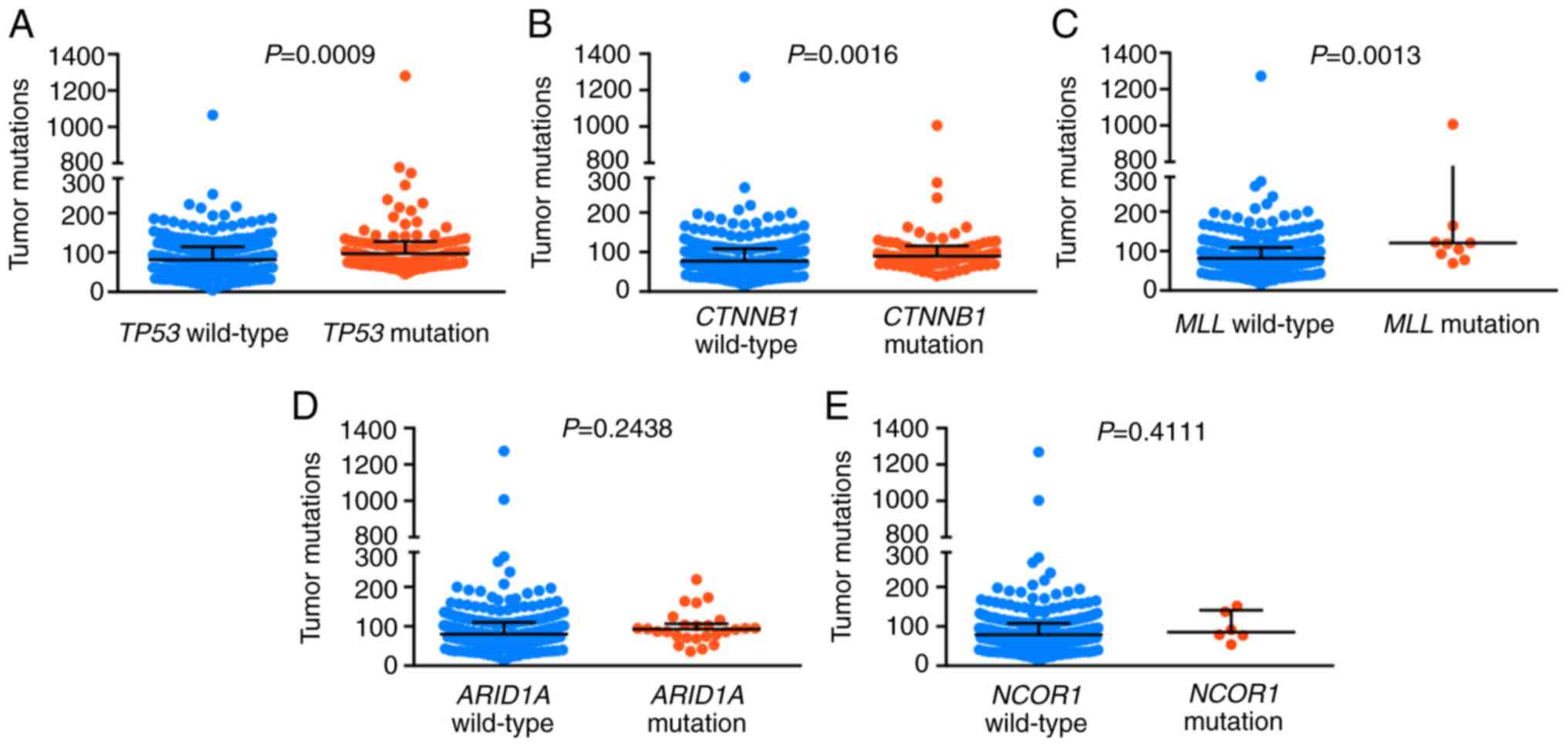
Implications of driver genes associated with a high tumor mutation burden identified using next‑generation sequencing on immunotherapy in hepatocellular carcinoma

Omics analyses of a somatic Trp53R245W/+ breast cancer model identify cooperating driver events activating PI3K/AKT/mTOR signaling | PNAS
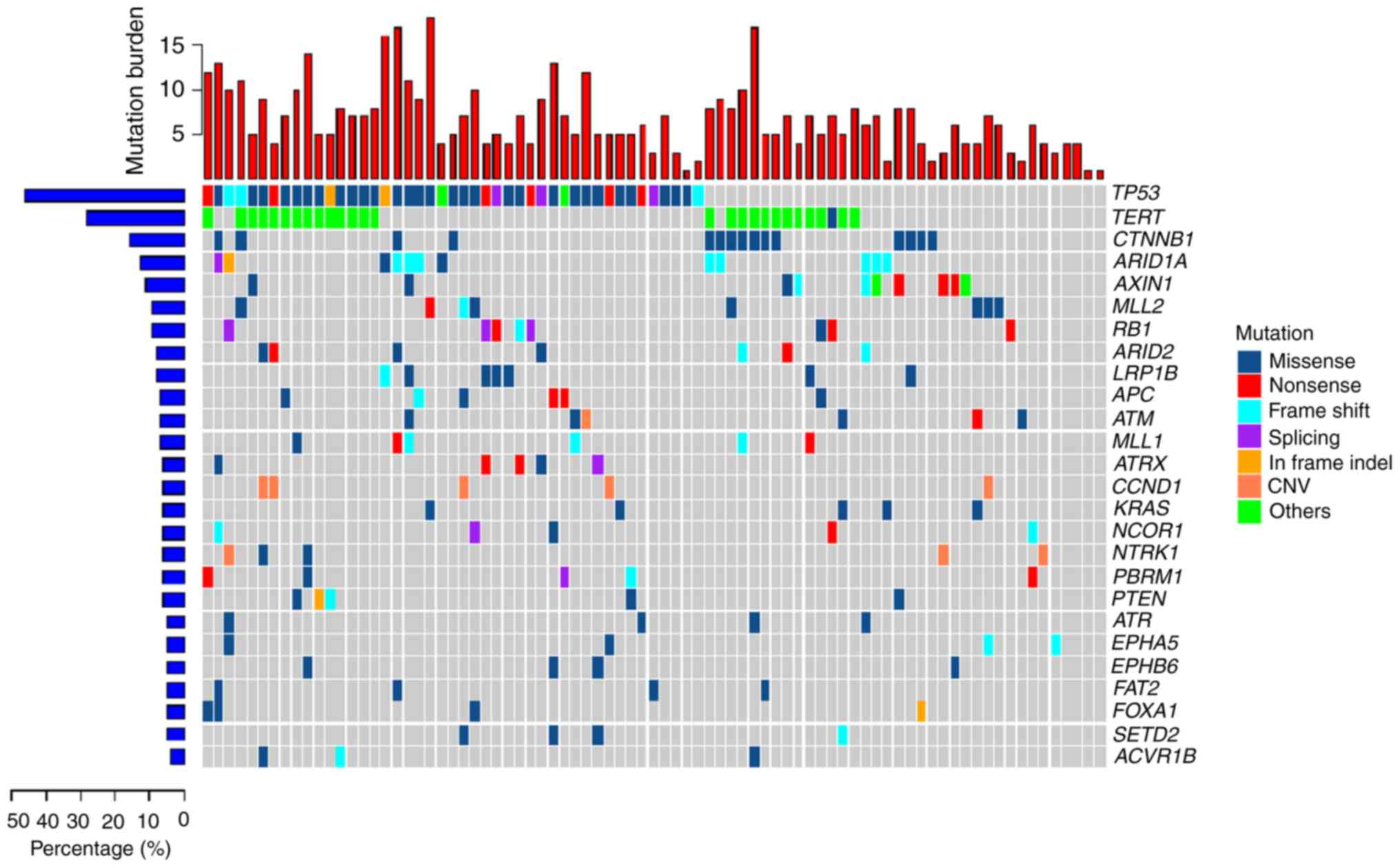
Implications of driver genes associated with a high tumor mutation burden identified using next‑generation sequencing on immunotherapy in hepatocellular carcinoma

Mutant p53 achieved Gain-of-Function by promoting tumor growth and immune escape through PHLPP2/AKT/PD-L1 pathway
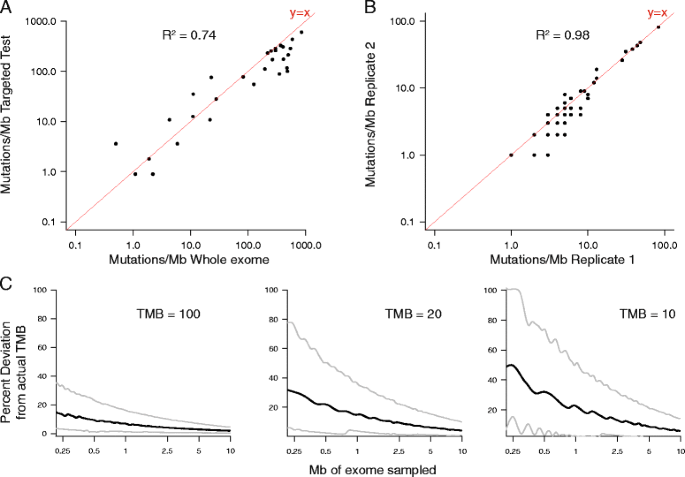
Analysis of 100,000 human cancer genomes reveals the landscape of tumor mutational burden | Genome Medicine | Full Text
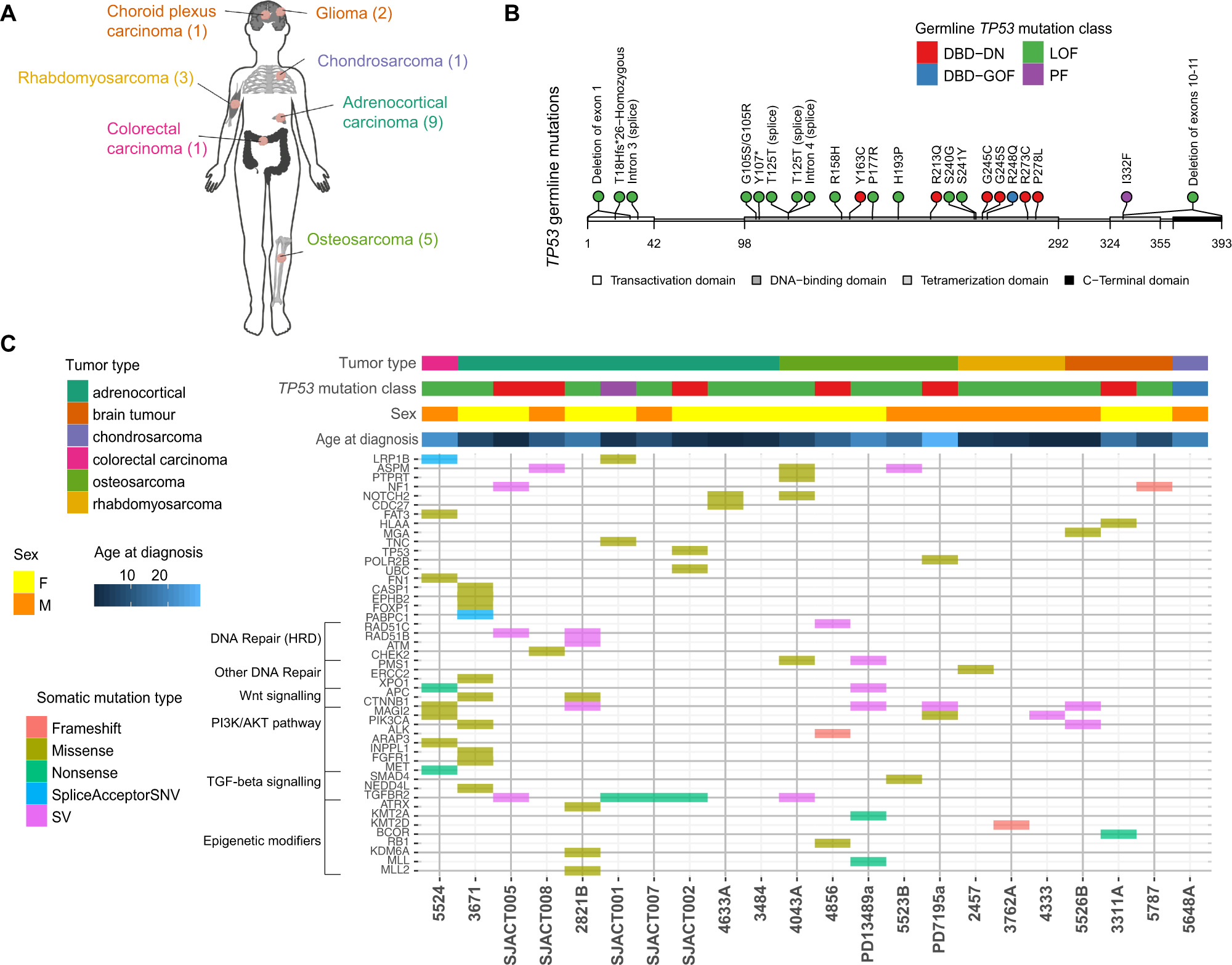
Germline TP53 mutations undergo copy number gain years prior to tumor diagnosis | Nature Communications
Recurrent somatic mutations reveal new insights into consequences of mutagenic processes in cancer | PLOS Computational Biology
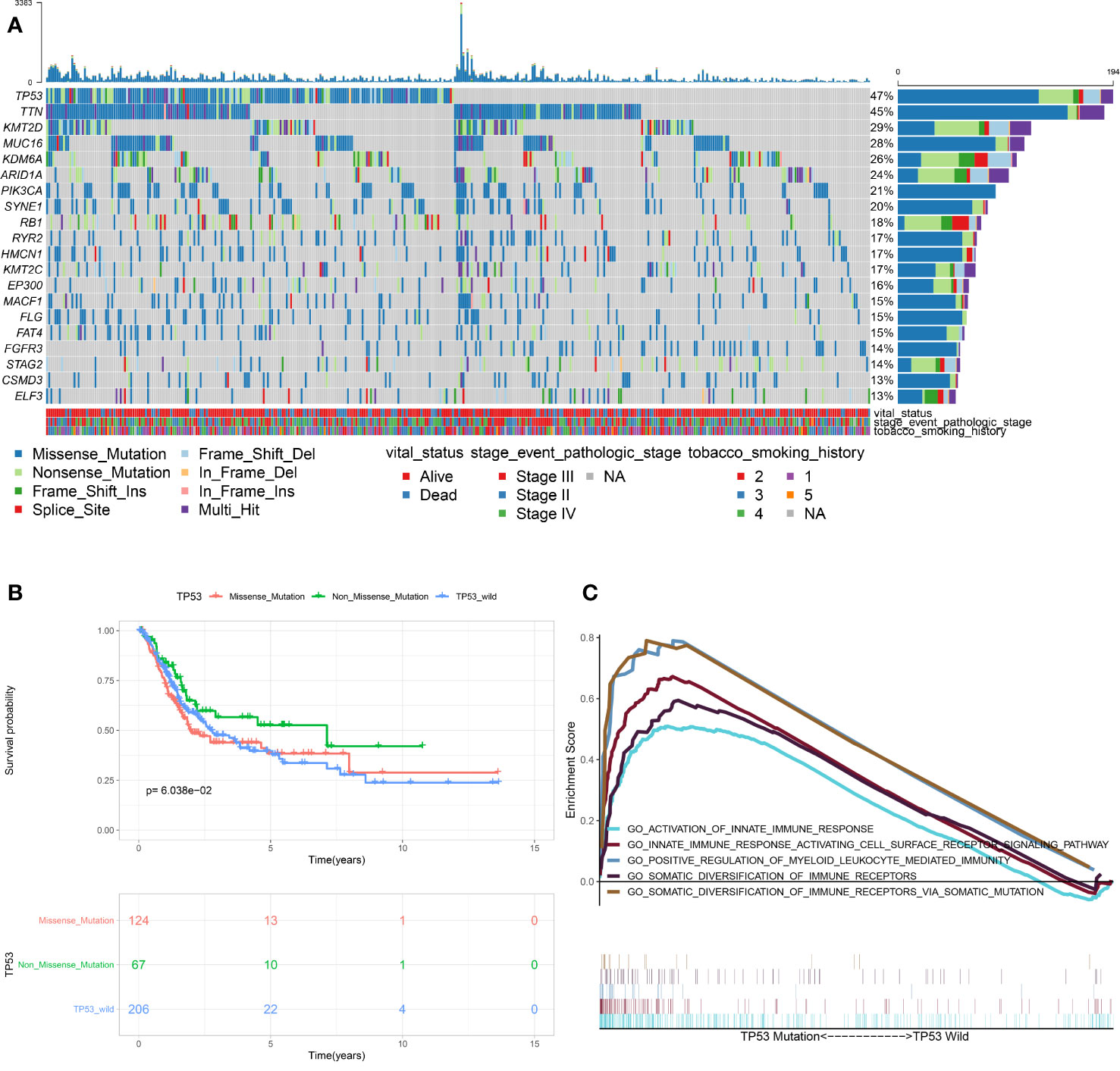
Frontiers | A TP53-Associated Immune Prognostic Signature for the Prediction of Overall Survival and Therapeutic Responses in Muscle-Invasive Bladder Cancer

Gaining insights into relevance across cancers based on mutation features of TP53 gene - ScienceDirect

An unexpected role for p53 in regulating cancer cell–intrinsic PD-1 by acetylation | Science Advances

Targeting Cavity-Creating p53 Cancer Mutations with Small-Molecule Stabilizers: the Y220X Paradigm | ACS Chemical Biology

TP53 mutational landscape of metastatic head and neck cancer reveals patterns of mutation selection - eBioMedicine

TP53 mutation spectrum in primary colorectal cancers. a Proportion of... | Download Scientific Diagram
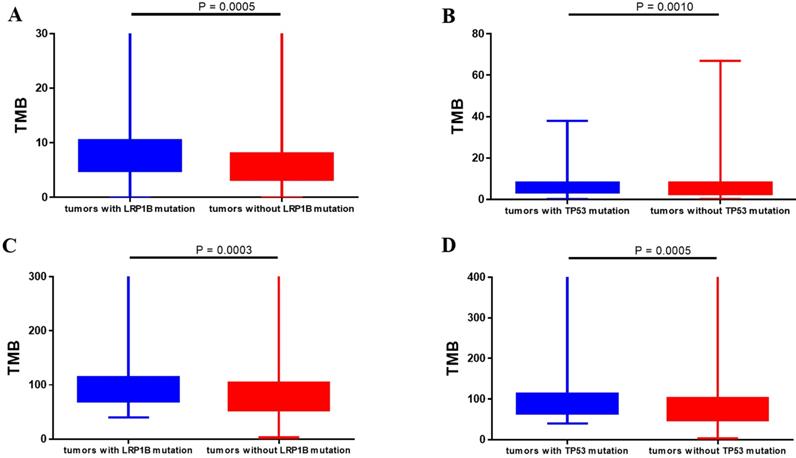
LRP1B or TP53 mutations are associated with higher tumor mutational burden and worse survival in hepatocellular carcinoma
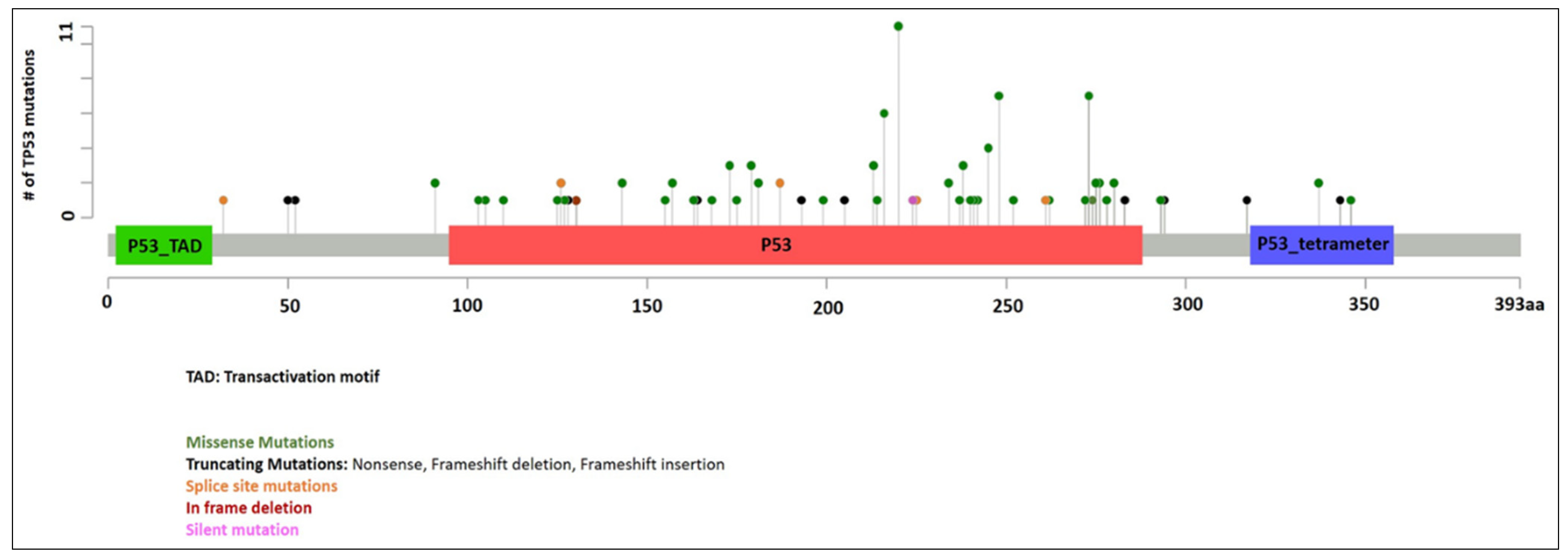




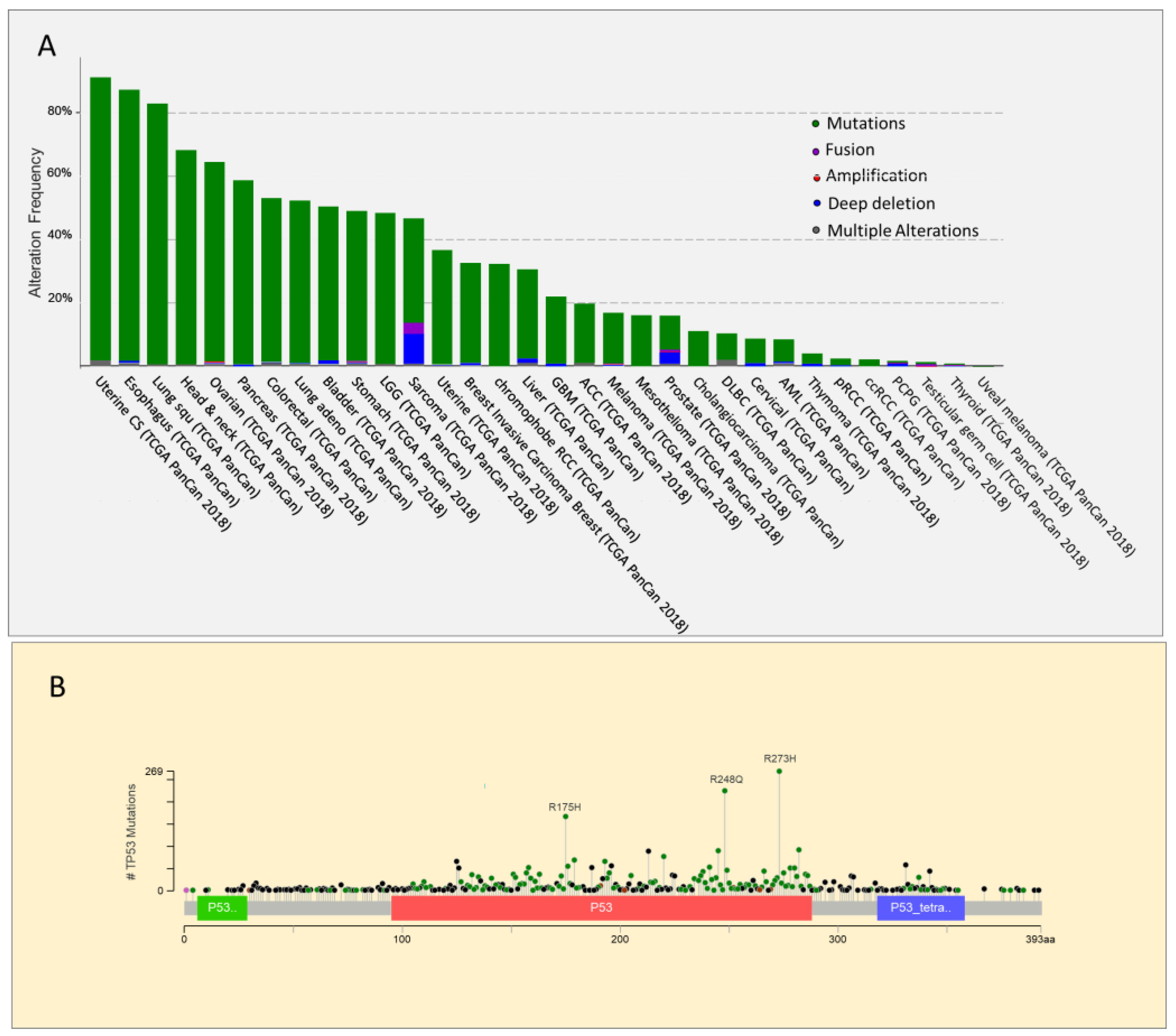
![Significance of TP53 mutation in bladder cancer disease progression and drug selection [PeerJ] Significance of TP53 mutation in bladder cancer disease progression and drug selection [PeerJ]](https://dfzljdn9uc3pi.cloudfront.net/2019/8261/1/fig-1-full.png)
